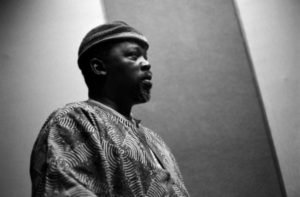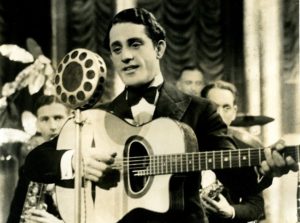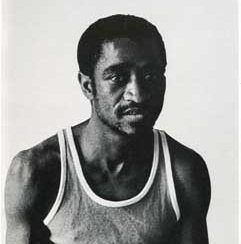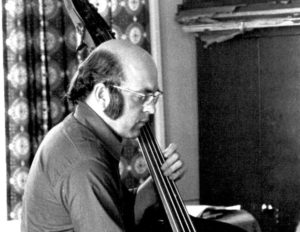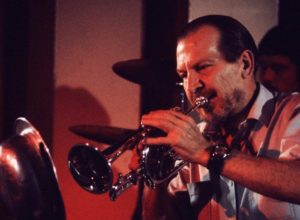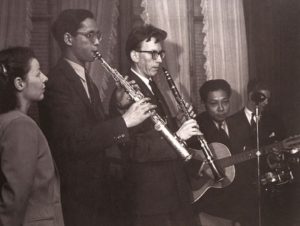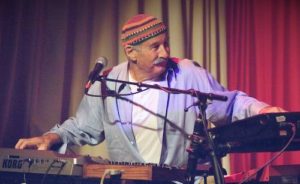Abdullah Ibrahim
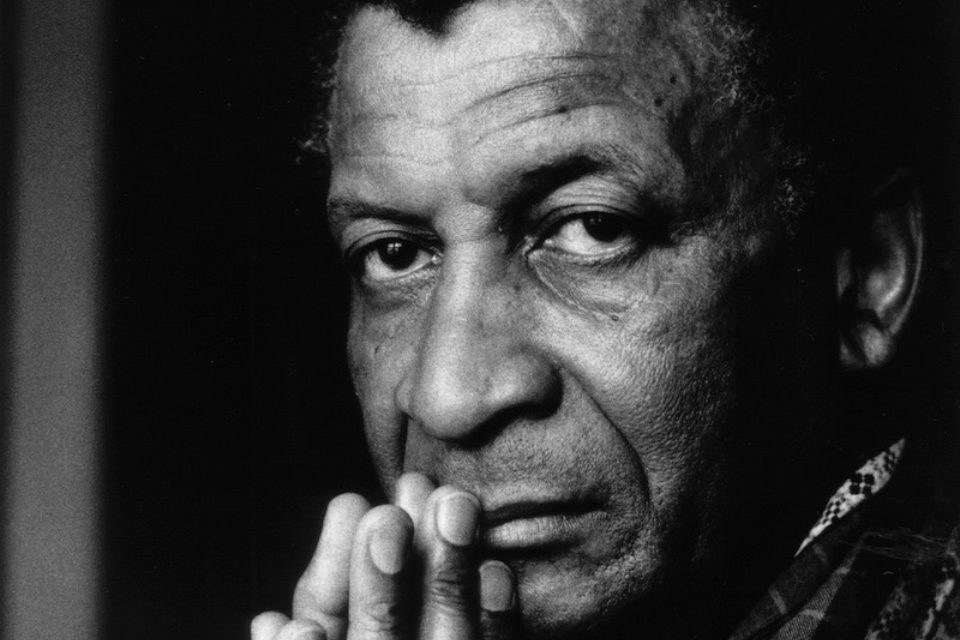
Born in Capetown, Abdullah Ibrahim (born 1934) was given the name Adolph Johannes Brand. He took piano lessons from the age of seven. Inspired by the boogie woogie records of Jimmy Yancey, Meade Lux Lewis and Albert Ammons, by traditional African and church music, and by the South African ‘Marabi’ style of piano playing, Ibrahim soon began to blend these threads into his own distinctive style.
He began playing professionally under the name ‘Dollar Brand‘ as a teenager in 1949. In 1954, he made his first recordings with the Tuxedo Slickers – a big band that covered swing numbers by the likes of Glen Miller and Tommy Dorsey, as well as playing traditional Zulu and Xhosa music. One of Ibrahim’s mentors at the time was the alto saxophonist Kippie Moeketsi. In 1959, he and Moeketi joined trumpeter Hugh Masekela, drummer Makaya Ntshoko, trombonist Jonas Gwangwa and bassist Johnny Gertze in a band that would be influential, but sadly short-lived, The Jazz Epistles. The band recorded one album, before increasingly belligerent enforcement of the Apartheid regime led to many of the musicians going into exile.
Ibrahim settled in Zurich, where he secured a residency at the Cafe Africana. Here he was heard by Duke Ellington, who was impressed enough to arrange a recording session for Ibrahim with Reprise Records. The album ‘Duke Ellington presents Dollar Brand Trio’ led to TV, radio and festival appearances for the trio (Ibrahim, Gertze and Ntshoko). Further encouragement from Ellington led to a move to New York in 1965, where he studied at the Juilliard School of Music, and also became interested in free jazz, performing with John Coltrane, Archie Shepp and Ornette Coleman among others. By the late 1960s, he had returned to his African heritage increasingly in his music, and recorded as often in solo contexts as he did with his trio. Having converted to Islam, he changed his name to Abdullah Ibrahim.
In 1974, he collaborated with saxophonists Basil Coetzee and Robbie Jansen on a album Mannenberg – Is Where It’s Happening. The title song ‘Mannenberg’ was named after a township, and became a hit, defining a new sound ‘Cape Jazz’ – a jazz-infused, horn-driven version of ‘marabi’. From 1983, a new 7-piece group Ekaya featured saxophonists Carlos Ward, Ricky Ford and Charles Davis. After the dismantling of apartheid, Ibrahim moved back to South Africa, performing at Nelson Mandela’s inauguration in 1994. The South African president in turn described Ibrahim as ‘our Mozart’ He toured with Max Roach in 1997, and has continued to headline festivals around the world. In 2016, Ibrahim, Jonas Gwangwa and Hugh Masekela were reunited for two ‘Jazz Epistle’ concerts in Johannesburg.
Key Recordings:
With The Jazz Epistles
Mannenberg – Is Where It’s Happening (1974)
Echoes From Africa (Enja 1979)
Water From An Ancient Well (Tiptoe 1985)
